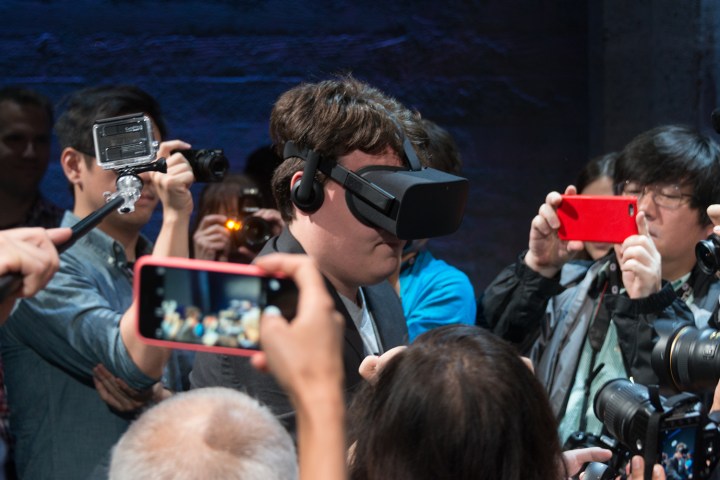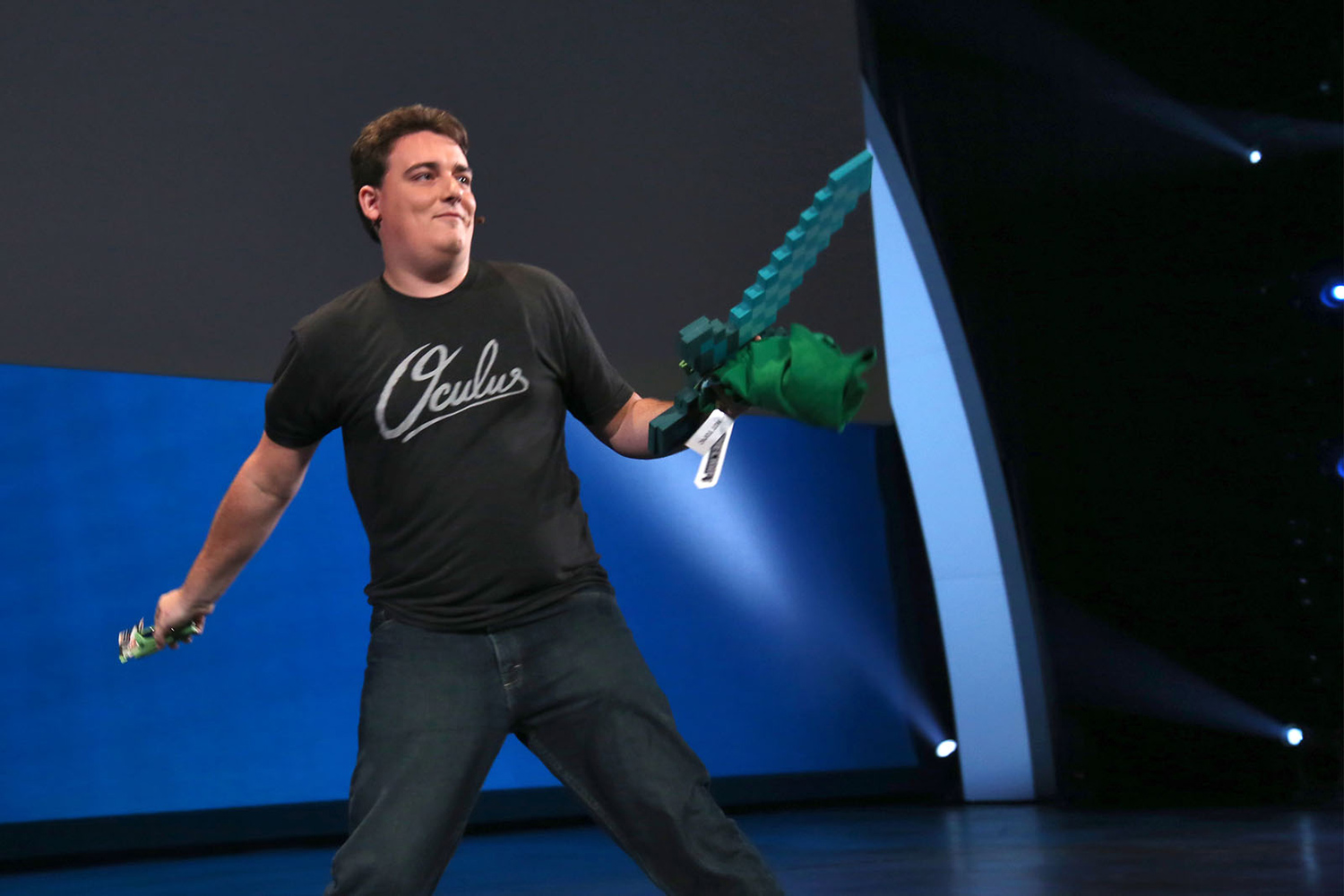
Plenty of people are pinning their hopes on VR opening a brave new world of experiences wholly unlike anything we’ve seen before. However, for that to come to pass, a lot of groundwork has to be laid.
The next twelve months are sure to be a vital period in the success or failure of VR as a mainstream form of entertainment. From what we’re seeing out of CES 2016, there’s still a great deal of uncertainty as to whether this tech is going to take off as dramatically as its proponents are expecting it to.
Follow the leader
It’d be easier for more individuals and developers to hitch their wagon to the VR revolution if there were any clear leader of the pack.
Initially, it seemed that Oculus was set to adopt that role, as its founder Palmer Luckey was the face of VR to many in the wake of the project’s unveiling back in 2012. However, since that time the company has morphed from an upstart crowdfunding success to one part of a larger corporate hierarchy, thanks to Facebook’s acquisition of the company in 2014.

Now there are plenty of competitors who seem capable of challenging Oculus’ throne. HTC has made impressive progress with its Vive, developed alongside the PC gaming experts at Valve, and PlayStation VR has likewise made up significant ground since it was initially announced as Project Morpheus.
While there are similarities between the various VR projects currently in the works, there are also significant differences in terms of platform, application and audience. This makes it very difficult for developers to decide where to focus.
A press release circulated earlier today to announce Oculus pre-orders promised “dozens of full-length, AAA games designed for VR.” Those experiences are not cheap to create, and there’s a very real threat that investments made to develop for one platform could prove unwise if another headset emerges as the market leader.
Hedging their bets
The similarities between various forms of VR mean that big budget games created with one form of the technology might be repackaged to work with a different headset. But because the proprietary controllers being built by each company are different, porting becomes more difficult as developers dive more deeply into each headset’s unique traits.
Oculus has managed to convince several studios to commit to releasing fully fledged titles for the Rift, with Harmonix, Insomniac, and Crytek among the more recognizable names. Many other developers must be looking at these chosen few as guinea pigs for the rest of the industry.

It will certainly be interesting to see whether or not games like Insomniac’s Edge of Nowhere are ported to other VR sets if the Oculus should underperform. The game seems designed to easily port to a console if VR doesn’t take off. It uses a third-person perspective, and is played with a gamepad.
The first wave of VR content creators must be brave, and rely on faith.
We are already seeing some content producers hedge their bets as they attempt to fulfil a need for VR experiences. Facebook has recently started a push for 360-degree video, which can of course be enjoyed in a standard web browser as well as via the use of a headset.
This sort of strategy cuts down on the creator’s risk. If VR is a bust and no one buys a headset, it doesn’t produce a situation where no one can view the content. However, the fact that the content can be viewed without a headset only serves to diminish the must-have nature of VR.
The first wave of creators are going to need serious fortitude, and more than a little faith, if they wish to fully use the capabilities of any particular headset.
If we build it, will they come?
Price point has long been VR’s elephant in the room. This morning, we found out that the Oculus Rift will retail for $600 — the exact same figure that launched a raft of Internet memes when Sony announced the price of the PlayStation 3 back in 2006.
There are a couple of differences between these two situations, and neither provide much solace for VR supporters. The PlayStation 3 was launched off the back of its predecessor, one of the most successful consoles ever released, and had an army of developers in tow as a result. It didn’t need a high-end gaming PC to function, either.
The $600 price tag might be tolerable, but the fact that it’s so reliant on a powerful rig, in addition to that price point, may well turn out to be crippling. It’s not a barrier of entry to anyone who’s already invested in PC gaming, but for anyone starting afresh, it makes VR a very expensive proposition.

It’s unclear whether we’re about to experience the next generation of home entertainment, or one of the biggest busts in recent years. However, the interest in this morning’s Oculus Rift pre-orders seems to suggest that the outlook isn’t as bleak as many might fear.
Over the course of less than an hour, shipping dates slipped from March, to April and then May. There are clearly consumers out there who will break through any price barrier to experience VR. But there are enough? And will they really choose the Rift as the lead platform? One thing is for certain — nobody knows.

